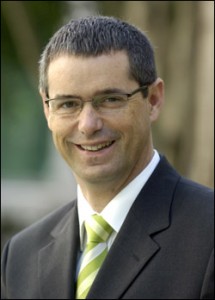Communications Minister Stephen Conroy has waded into the debate about whether the growing popularity of 3G wireless broadband services has the potential to cannibalise National Broadband Network subscriptions, saying the two platforms are complementary.
In a wide-ranging speech last night in which he also delivered certainty about the future of wireless spectrum licensing, Conroy poured cold water on those like Exetel chief executive John Linton who believe wireless to be the future.
“The growth in wireless services does not have to be at the expense of fixed broadband, or vice versa,” he said. “At a more technical level, wireless and fixed broadband technologies are complementary.”
The minister claimed the “massive growth” in mobile services would actually drive greater use of fixed services, “particularly if the trend towards centralised processing of data occurs in the internet cloud”.
He pointed out mobile broadband depended on fixed-line backhaul, and would benefit from the rollout of the NBN through more affordable backbone traffic. “The Government’s massive expansion of the fixed line capacity through the NBN will dramatically increase development of wireless services,” he said.
Similar comments have come from NBN CEO Mike Quigley and various other parties in the telecommunications industry. But the debate about wireless versus fixed broadband refuses to go away. This morning on his blog, Linton pointed to US news that the country’s own NBN plan would be a win for wireless companies.
“Exetel has a small, but continually growing, business wireless user base who provide all of their personnel (the largest of these has well over 100 people) with wireless internet only for their travel and home use and have canceled all of the land line connections they used to provide to many of those personnel,” he wrote.
“Similarly, we have a small, but continually growing, ‘stream’ of our own long term low end ADSL users who buy an Exetel wireless service and subsequently cancel their ADSL service and usually their wire line telephone line too.”
Telcos like Telstra and Optus have also been seeing strong adoption of their mobile broadband solutions.
Spectrum certainty
Later in the speech Conroy revealed the Government’s approach to the need to reissue or renew 15-year-old wireless spectrum licences whih are set to expire between 2013 and 2017. The services are mainly used to provide 2G and 3G mobile services.
“Spectrum licence renewal will be offered, to those telecommunications incumbents who are already using their spectrum licences to provide services to significant numbers of Australian consumers, or who have in place networks capable of providing services to significant numbers of consumers, provided they also meet the public interest criteria,” said Conroy.
This approach would avoid the need to auction the spectrum, although Conroy noted this remained an option if negotiations with carriers did not end up satisfying his public interest criteria.
“The Australian Government will seek a fee that reflects the scarcity and value of this important resource. The [Department of Broadband, Communications and the Digital Economy] will soon be approaching certain stakeholders to commence discussions on the possible renewal of their spectrum licences.
The carriers that will be approached are Telstra, Optus, VHA and vividwireless.
Image credit: Office of Stephen Conroy

